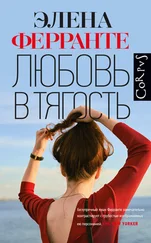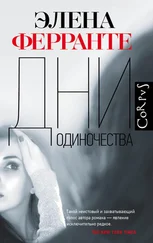“When did my grandmother die?” I asked.
“Before you were born.”
“Then Aunt Vittoria told a lie, she didn’t give me the bracelet.”
“That’s what your father says.”
I sensed that she didn’t believe him, and since I had believed Vittoria and still believed her, although unwillingly, I didn’t believe him, either. But, against my will, here was the bracelet already following the path of a new story full of consequences. In my mind, the object in a few seconds became an essential part of the fights between brother and sister, a further fragment of their hatreds. I imagined my grandmother lying there gasping for breath, eyes wide, mouth open, and my father and Vittoria, on the edge of her death agony, fighting over the bracelet. He tore it off, took it away in a storm of insults and curses, throwing bills in the air. I asked:
“In your view, Papa, at least at first, took the bracelet from Vittoria to give to me when I grew up?”
“No.”
That monosyllable, so sharp, hurt me, I said:
“But he didn’t take it to give to you, either.”
My mother nodded yes, she put the bracelet back in the drawer, and, as if her strength were about to fail, lay down on my bed sobbing. I felt uneasy, for months she who never cried had been crying all the time, and I would have liked to as well, but I restrained myself, why didn’t she? I caressed her shoulder, I kissed her hair. It was very clear now that, however he had come into possession of that piece of jewelry, my father’s objective had been to hook it around Costanza’s slender wrist. The bracelet, however you looked at it, in whatever type of story you inserted it—a fairy tale, an interesting or boring story—showed only that our body, agitated by the life that writhes within, consuming it, does stupid things that it shouldn’t do. And even if I could accept that in general—for Mariano, for example, and even for my mother and for me—I would never have imagined that stupidity could ruin even superior people like Costanza, like my father. I reflected for a long time on all that, I fantasized about it, at school, on the street, at lunch, at dinner, at night. I looked for meanings to get around that impression of scant intelligence in people who had so much of it.
2.
In that couple of years many significant things happened. When my father, after repeating that I really was like his sister, disappeared from home for the first time, I thought he had left because of the revulsion I inspired. Grieved, resentful, I decided that I wouldn’t study. I didn’t open a book, I stopped doing my homework, and as the winter passed I became more and more alien to myself. I eliminated any habits that he had imposed: reading the newspaper, watching the television news. I went from wearing white or pink to black, my eyes were black, my lips, every item of clothing was black. I was in a daze, indifferent to the teachers’ reproaches, unmoved by my mother’s complaints. Instead of studying I read novels, watched movies on TV, deafened myself with music. The main thing was, I lived mutely, a few words and that was all. I’d never had friends, apart from the long tradition with Angela and Ida. But from the moment they, too, were swallowed up by the tragedy of our families, I was completely alone, my voice whirling aimlessly in my head. I laughed to myself, I made faces, I spent a lot of time on the steps behind the high school or at the Floridiana, on the paths bordered by trees and hedges that I had once walked with my mother, with Costanza, with Angela, with Ida still in her carriage. I liked plunging stupefied into that long-ago happy time as if I were already old, staring beyond the low wall, without seeing it, into the gardens of Villa Santarella, or sitting on a bench in the Floridiana looking out at the sea and the whole city.
Angela and Ida reappeared late and only on the telephone. It was Angela who called me, very excited, saying she wanted to show me the new house in Posillipo as soon as possible.
“When are you coming?” she asked.
“I don’t know.”
“Your father said you’ll stay with us a lot.”
“I have to keep my mother company.”
“Are you mad at me?”
“No.”
Having confirmed that I still loved her, she changed her tone, became more anxious, and confided to me some secrets of her own, even though she must have understood that I didn’t want to hear them. She said that my father would become a kind of father to them, because after the divorce he would marry Costanza. She said that Mariano not only didn’t want to see Costanza anymore but not them, either, and that was because—he had yelled it one night and she and Ida had heard—he had no doubt that their real father was mine. Finally, she revealed that she had a boyfriend but I shouldn’t tell anyone: the boyfriend was Tonino. He called her often, they met in Posillipo, had taken a lot of walks to Mergellina, and less than a week ago had declared their love for each other.
Even though the phone call was long, I said almost nothing. I didn’t even utter a word when she whispered ironically that, since perhaps we were sisters, I would become Tonino’s sister-in-law. Only when Ida, who must have been there beside her, cried to me, forlornly, it’s not true that we’re sisters, your father is nice but I want mine, I said softly: I agree with Ida, and even if your mother and my father get married, you’ll still be Mariano’s daughters and I’ll be Andrea’s. I kept to myself my irritation at her letting me know that she was going out with Tonino. I muttered only:
“I was joking when I said he liked me, Tonino never liked me.”
“I know, I asked him before saying yes, and he swore that he never liked you. He loved me from the moment he saw me, all he thinks about is me.”
Then, as if the distress behind the chatter had built up pressure and broken through the dam, she burst into tears, said sorry, and hung up.
How much we all cried, I couldn’t stand any more tears. In June my mother went to see what I had been up to in school and discovered that I hadn’t been promoted. She knew, of course, that I was doing very poorly, but failure seemed extreme to her. She wanted to talk to the teachers, she wanted to talk to the principal, she dragged me with her as if I were the proof that an injustice had been done. It was torture for both of us. The teachers had a hard time remembering me, but they showed the records of bad grades, they proved to her that I had had an excessive number of absences. She was upset, especially about the absences. She murmured: where did you go, what did you do. I said: I was at the Floridiana. This girl, the literature professor interrupted at one point, evidently has no talent for classical studies. I didn’t answer, but I would have liked to shout that, now that I was grown up, now that I was no longer a puppet, I didn’t feel I had a talent for anything: I wasn’t intelligent, I wasn’t capable of good intentions, I wasn’t pretty, I wasn’t even nice. My mother—too much eye makeup, too much powder on her cheeks, the skin on her face drawn, like a veil—answered for me: she has talent, she’s very talented, except this year she was a little lost.
As soon as we were outside she started blaming my father: it’s his fault, he left, he’s the one who should have been keeping an eye on you, helping and encouraging you. She continued at home, and since she didn’t know how to track down her guilty husband, the next day she looked for him at school. I don’t know what happened between them, but that night my mother said:
“We won’t tell anyone.”
“What?”
“That you weren’t promoted.”
I felt even more humiliated. I discovered that I wanted people to know, that failure, after all, was my only mark of distinction. I hoped that my mother would tell her colleagues at school, the people she corrected proofs and wrote for, and that my father—my father especially—would tell those who respected and loved him: Giovanna isn’t like me and her mother, she doesn’t learn, she doesn’t work hard, she’s ugly inside and out like her aunt, maybe she’ll go and live with her, in the Macello neighborhood, in the Industrial Zone.
Читать дальше
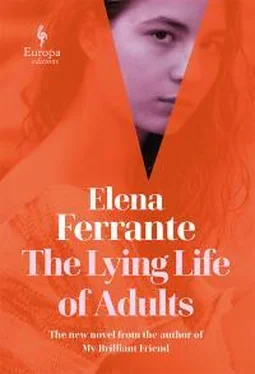
![Элена Ферранте - История о пропавшем ребенке [litres]](/books/32091/elena-ferrante-istoriya-o-propavshem-rebenke-litres-thumb.webp)
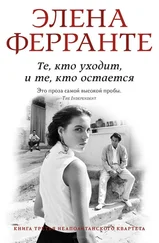
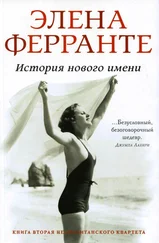
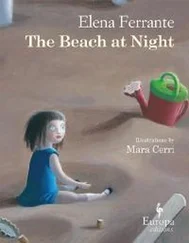
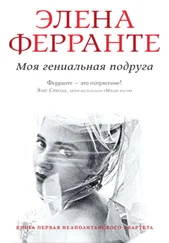
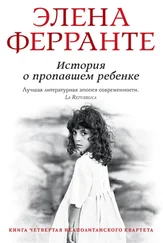
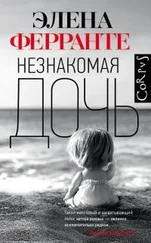
![Элена Ферранте - Дни одиночества [litres]](/books/404671/elena-ferrante-dni-odinochestva-litres-thumb.webp)
